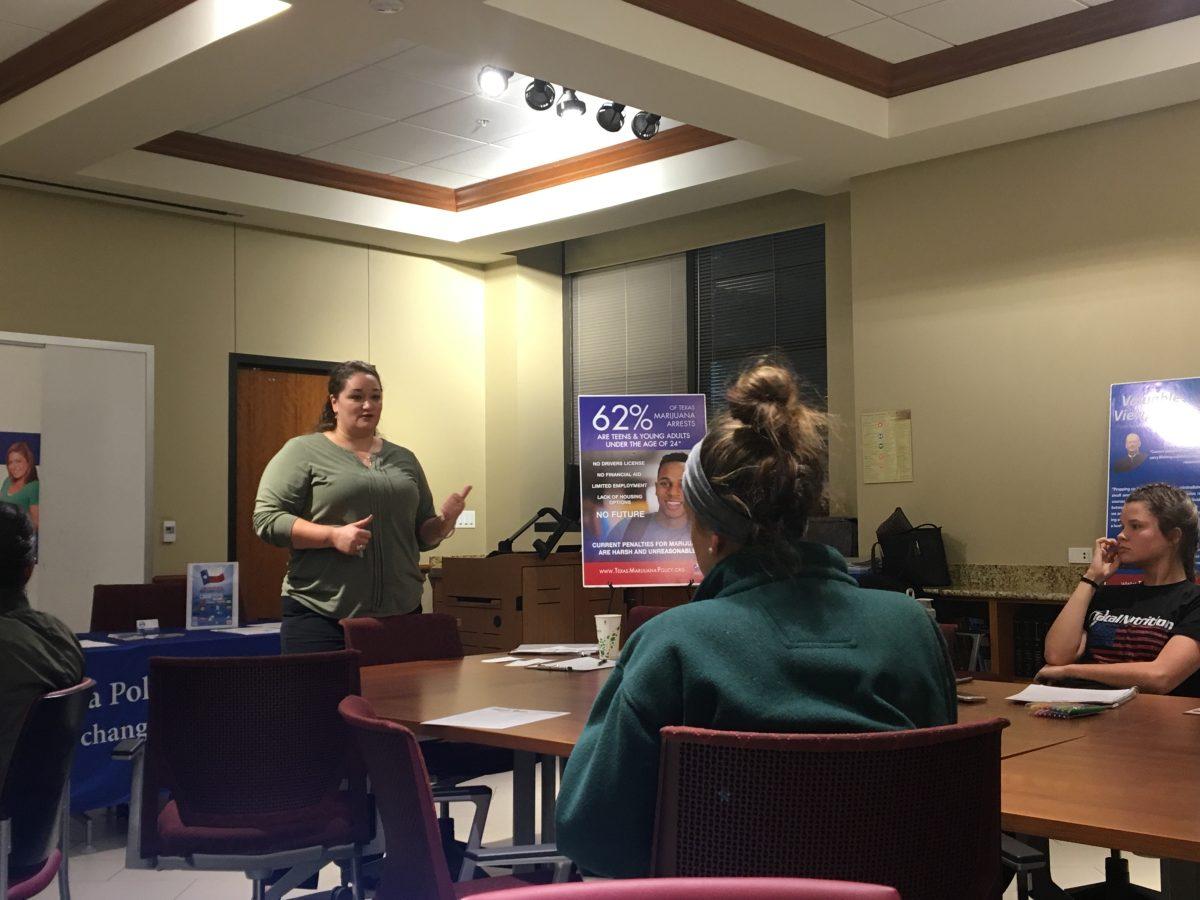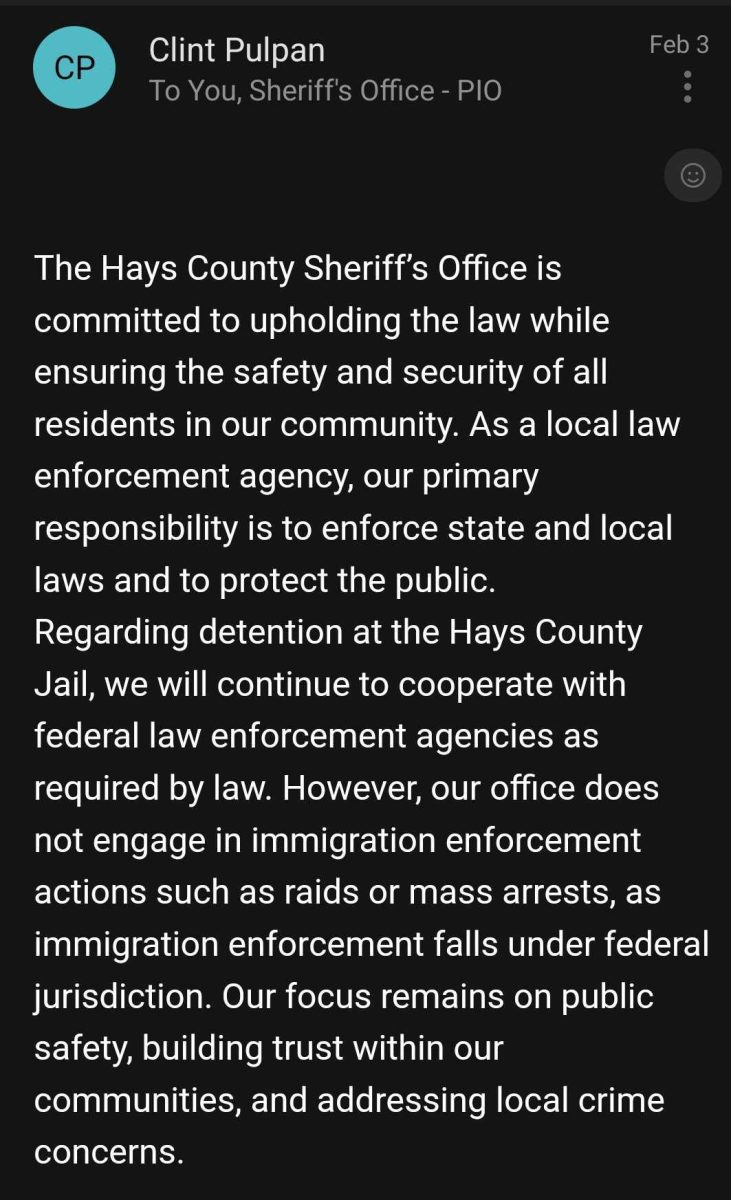The Marijuana Policy Project hosted an advocacy workshop on Nov. 8 in hope of inspiring students to support the reform of marijuana regulations. The event relates to the 2017 Common Experience and was led by the organization’s president, Heather Fazio.
The legalization of marijuana has always been a sensitive topic for most Americans to discuss. However, with 29 states permitting the use of medicinal cannabis, and eight of them also allowing recreational use, some people believe that Texas legislation regarding marijuana is behind.
Having being a big part of the campaign that aided in the legalization of marijuana in Colorado, the Marijuana Policy Project’s main goal is to remove criminal penalties for low level offenses related to cannabis, or reduce them to simpler sanctions like a ticket, something 20 states have already done.
This change in policy would allow teenagers and young adults to keep a clean record and therefore be eligible for more job opportunities later on in life. Currently, 62 percent of marijuana arrests are teenagers and young adults under the age of 24.
“Between 60,000 and 70,000 are arrested every year in Texas alone, for the simple possession of marijuana,” Fazio said.
Unlike most individuals, Fazio believes that marijuana use can be controlled and regulated through education, much like tobacco. She sees the plant, especially the low THC kind, as an important medical treatment that could help in treating various conditions such as PTSD and epilepsy.
“We have seen a 33 percent decrease in opium death and addiction in the states that have allowed medical cannabis to be used,” Fazio said.
The workshop continued with tips on better interaction techniques with legislators after scheduling a meeting. Advocating for a cause needs to be built up and Fazio states that the interim period between legislative session are the best times for you to inform representatives of your stance on different issues.
“Finding out what your legislator cares about is a positive point. It’s all about human interaction,” Fazio said. “Often times, it is more powerful to present yourself as an individual rather than as a member of an organization.”
As of September 2017, Texas has begun to select companies to operate cannabis businesses. A total of three have been chosen to cultivate, process and dispense the plant to individuals who qualify. Licensing has also been given to 410 doctors in the state, which allows them to participate in the prescription of marijuana rather than just recommending it. The latter is illegal under federal law and has brought about questionable promises.
Categories:
Speaker tells students to fight for marijuana reform
November 9, 2017
Heather Fazio, president of the Marijuana Policy Project, discussed marijuana reform with students in Comal 116, Nov. 8.
Photo by Sandra Sadek | News Reporter
0
Donate to The University Star
Your donation will support the student journalists of Texas State University. Your contribution will allow us to purchase equipment and cover our annual website hosting costs.
More to Discover















